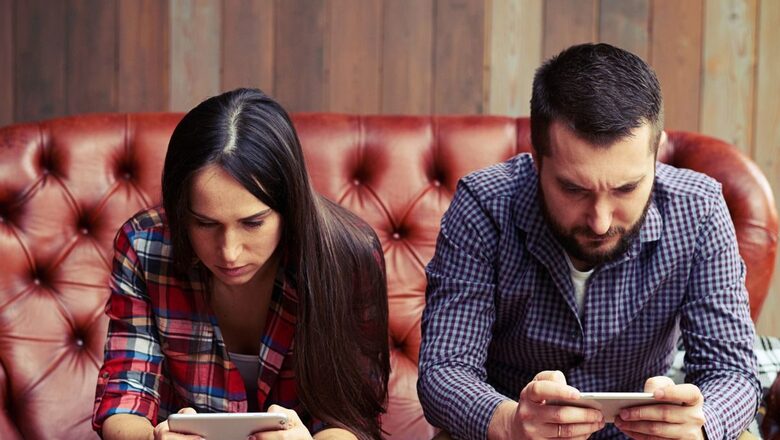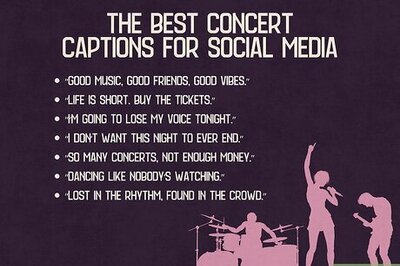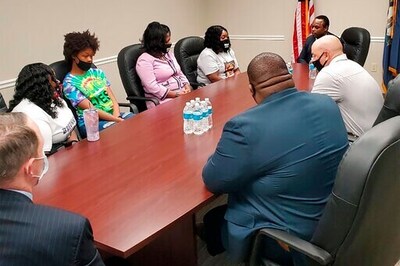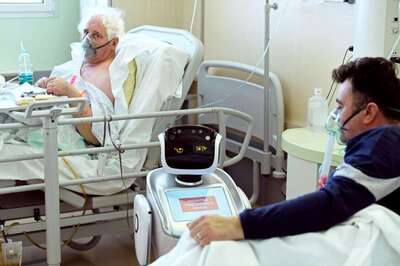
views
Sex may permeate our popular culture, but conversations about it are still associated with stigma and shame in Indian households. As a result, most individuals dealing with sexual health issues or trying to find information about sex often resort to unverified online sources or follow the unscientific advice of their friends.
To address the widespread misinformation about sex, News18.com is running this weekly sex column, titled ‘Let’s Talk Sex’. We hope to initiate conversations about sex through this column and address sexual health issues with scientific insight and nuance.
In this article, we will explore the significance of sex and social media in our lives and how it is affecting our relationships.
You wake up and the first thing you do is check your phone. Not for messages from friends or family, but for likes, hearts, and comments on last night’s selfie. Admit it, social media has you hooked. We can’t stop snapping selfies, posting pics of our avocado toast, or live-streaming our gym class. Real life and real relationships are suffering as a result. Whatever the root cause, social media has become the new sex, it gives us a rush of feel-good hormones and we constantly crave more. But unlike sex, too much social media may be rewiring our brains and damaging our wellbeing. So log off once in a while — your followers will still be there, but your sanity and self-esteem may not.
How Technology Has Changed Intimacy
While technology has made it easier to connect in some ways, it’s also invaded our bedrooms and changed the way we think about sex. Take sexting, for example. Sending flirty messages and naughty selfies to a crush or partner might seem exciting, but it also means your private moments aren’t really private anymore. Once you snap that picture, you lose control of where it ends up. Not to mention, viewing highly curated images of others’ sexuality on social media can fuel unrealistic expectations about what sex “should” look like.
Of course, tech isn’t all bad for your sex life. Dating apps have made it easier to find a compatible partner. Long-distance couples can use video chat when they’re apart. At the end of the day, maintaining a healthy sex life in the digital age comes down to balance. Put down your phone, limit social media use, and make time to connect with your partner(s) beyond the screen.
How Smartphones Are Ruining Our Relationships
Phubbing, or phone snubbing, is when you ignore the person you’re with to focus on your phone instead. We’ve all been guilty of it at some point, and sadly it’s become commonplace in today’s digital world. When you phub someone, it makes them feel like they don’t matter and that whatever is on your phone is more important. Studies show phubbing can damage relationships and lead to feelings of depression or distress in the person being ignored. Over time, phubbing can become a habit that’s hard to break. But being mindfully present with the people in your life leads to stronger & healthier relationships.
Digital Detox: Do We Need to Unplug?
A digital detox means taking an extended break from social media, screens, and other electronics. It gives you the opportunity to disconnect from the online world and reconnect with yourself. Some of the benefits of unplugging include:
• Reduced anxiety and depression. Excessive social media use has been linked to increased rates of anxiety, depression, and loneliness.
• Improved focus and concentration. Without the constant distraction of notifications and “fear of missing out,” you can improve your focus and be more present in the moment.
• Better sleep. Blue light from screens disrupts your circadian rhythm and makes it harder to fall asleep. Unplugging in the evening allows your body and mind to wind down for sleep.
• Stronger relationships. Spending less time on social media and more time engaging with friends and family in person can help strengthen your real-world relationships.
Finding Balance in the Digital Age
Finding the right balance between social media and real life connections can be challenging in today’s digital world. It’s so easy to get caught up in the excitement of likes, hearts, and retweets that hours can pass by without you even realizing it. But at what cost? Are you sacrificing time with friends, family, exercise, sex, or other meaningful life experiences just to stay online?
Make time for real life
• Schedule in-person meetups with friends, go on real dates, make home-cooked dinners, start a new hobby, or engage in regular exercise. Giving your full attention to the real people and activities in your life will make you appreciate the time you do spend on social media even more.
• Try leaving your phone in another room for periods of time each day. You’ll find that you can survive without constant connection and distraction. Start with just 30 minutes and build up from there.
• Make your bedroom a phone-free zone. Keep your phone charging in another room at night so you’re not tempted to scroll through social media when you should be sleeping or engaged in other ahem nighttime activities with your partner.
• Limit social media use to 30 minutes a day. Use time tracking apps to track how often you’re using different apps and set daily time limits to avoid wasting hours mindlessly scrolling.
While social media definitely has its benefits when used constructively, don’t let it become a substitute for living your best life offline surrounded by people who really matter to you. Make the effort to disconnect from the digital world regularly so you can reconnect with yourself and your loved ones in person. Your life and relationships will be infinitely richer for it.
Conclusion
So, what matters more in the end, real intimacy or Social Media? The answer may not be as straightforward as you think. While technology has brought us together in so many ways, it’s also pulling us apart by diminishing real relationships. At the end of the day, you have to log off, look up from your screen and nurture the connections that really matter. Make time for face-to-face conversations, share experiences together, express affection freely and frequently. Social media will always be there to supplement our social lives, but it should never substitute real human interaction and bonding. Life is meant to be lived, not just liked. So power down, reach out and embrace the relationships that fill you up in a way that double taps never will.




















Comments
0 comment